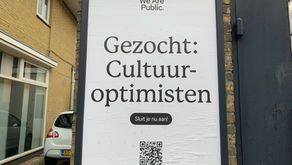Women at King's Festival
- Judith Weir
- Jun 23, 2023
- 2 min read
Updated: Jul 6, 2023

King's College Cambridge (founded 1441) has been marking the fifty year anniversary of women students and fellows being admitted for the first time in 1972. A year of events has been going on, and as one of that early cohort - beginning a music degree exactly 50 years ago - I attended the Women at King's Festival held in marquees in front of the Chapel, next to the celebrated Wildflower Meadow (pictured) on a hot Saturday afternoon.
The college is very fortunate now to have composer Richard Causton on the professorial staff, and he and I had a most enjoyable public chat, about Music and Society, Does Music Matter? etc. Having nimbly covered some of those topics, Richard asked me, as an representative of the earliest generation of King's women, "what was it like in those days" ?
Actually I find this impossible to describe to people who weren't there at the time. On the arrival of my year group, the second year of womens' admission, our college had about eighty women students (out of c450) and I think just one woman fellow. Two other men's colleges (Clare and Churchill) had dipped a similar toe in the water, and of course there were the three exisiting and redoubtable women's colleges. But otherwise, everywhere else was emphatically male-dominated, including our music faculty where I was one of four girls in a class of forty, with again no women teachers at all.
I know that details like these aren't of huge interest to younger women facing their own battles, so I don't usually go on about them. I wasn't prepared therefore for the force of the audience response at the end of our talk from fellow students from that time, who also had memories to share: " I think they wanted to admit women students but had not thought at all how to do it" "I had this maths supervisor and I'll swear I was the first woman he had ever met apart from his mother". "Our professor wouldn't start the lecture until there was at least one male student in the room".
Etc, etc. As we then remarked, the good way to see this is to observe the transformation utterly for the better that has overtaken Cambridge ever since. But as I pondered on the train home, why did it take the university until 1972 to reach this, very preliminary, step ? And what elements of current life will we be similarly wondering at in fifty years time?






